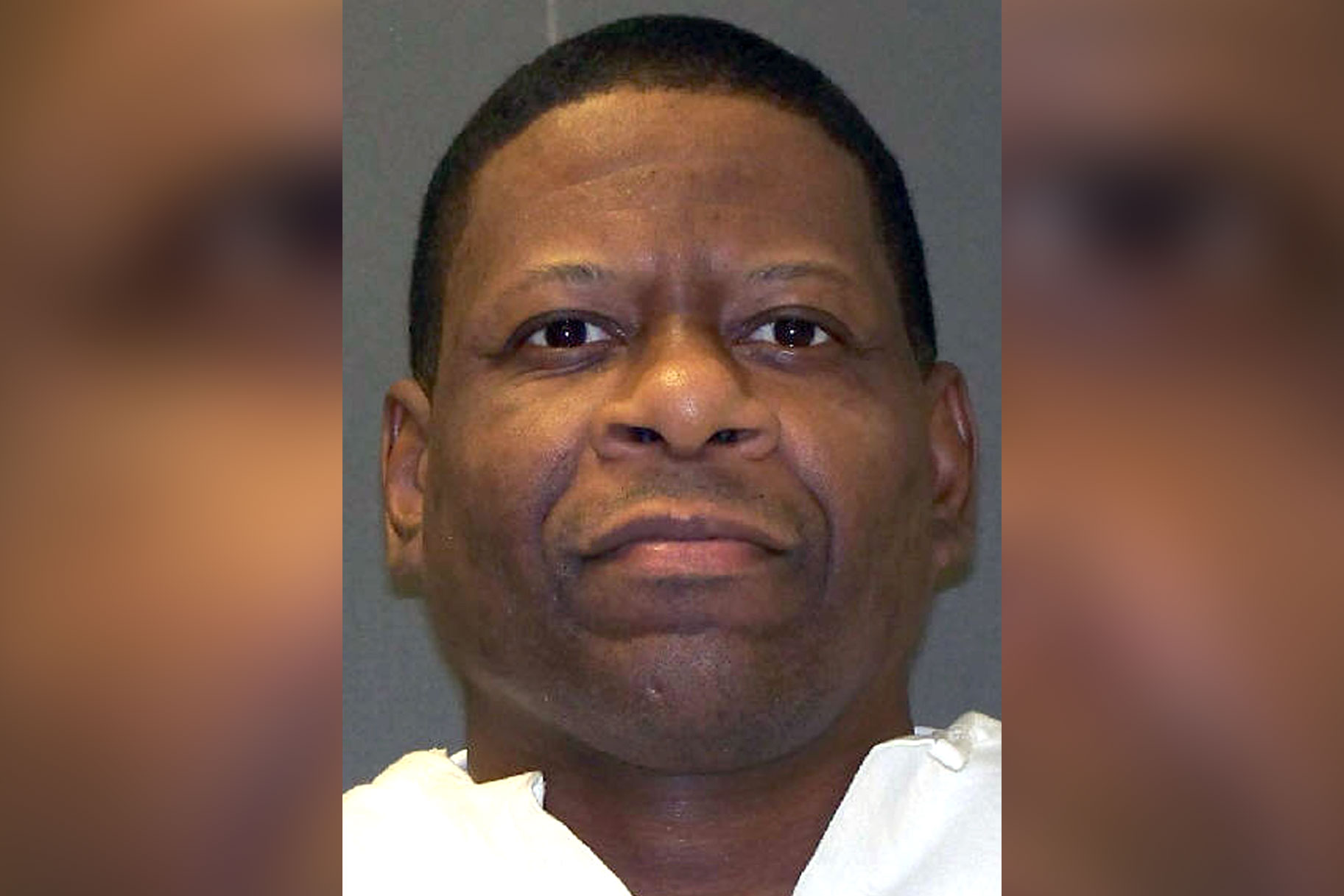Create a free profile to get unlimited access to exclusive videos, breaking news, sweepstakes, and more!
Supreme Court Agrees To Hear Texas Death Row Inmate Rodney Reed's DNA Testing Case
Texas death row inmate Rodney Reed became a cause célèbre after Kim Kardashian promoted his efforts to obtain post-conviction DNA testing on crime scene evidence. The U.S. Supreme Court has agreed to weigh in on the lower courts decision to deny him.

The Supreme Court has agreed to weigh in on an appeal from Texas death row inmate Rodney Reed, who is seeking DNA testing of crime scene evidence as part of a continued attempt to clear his name.
The Supreme Court granted Reed’s petition for a writ of certiorari — or review of the case — on Monday, according to court records. Reed’s legal team is hoping to challenge an appeals court decision that he waited too long to request DNA testing of evidence discovered at the crime scene and exceeded the statute of limitations under state law, according to The Associated Press.
Reed is on death row after being convicted of the 1996 assault, rape and murder of 19-year-old Stacey Lee Stites in Bastrop County, Texas.
Reed has long proclaimed his innocence in the murder and suggested that Stites’ fiancé Jimmy Fennell — a former cop with a history of violence — could be the real killer.
Reed was convicted after his DNA matched “sperm found in Stites’ vaginal tract” and prosecutors argued that he kidnapped and raped the teen on her way to work, according to court records obtained by Law & Crime.
However, Reed has insisted that at the time of her death “he was having a clandestine sexual relationship with Stites,” which his attorneys have argued explains the “single piece of physical evidence” that linked Reed, who is Black, to the death of Stites, who was white. Reed would have been 29 at the time.
Reed's lawyers have suggested that Fennell, a local police officer who had been the last person to see Stites before the brutal murder, is a more likely suspect.
According to Reed’s attorneys, Fennell also gave conflicting accounts of his final night with Stites, was found to be deceptive on a polygraph test and had made threatening statements in the past.
And, about a month before the murder, Fennell had allegedly told someone that Stites had been “f---ing a n---er,” according to the court documents.
Fennell — who has denied any involvement with the murder — later served time behind bars for an unrelated sexual assault. While behind bars, Reed’s attorneys have alleged that Fennell “told a fellow inmate that he ‘had to kill [his] n---er-loving fiancé.”
Reed’s attorneys are hoping to conduct DNA testing on items found near the crime scene, including a belt, as part of their ongoing effort to free Reed, who has received support from celebrities including Kim Kardashian and Rihanna.
Lower courts have ruled that under Texas law Reed waited too long to request the post-conviction DNA testing, but now the Supreme Court will weigh in on the matter.
"The basic question is a technical one about when the clock starts running for federal lawsuits by prisoners who seek DNA testing of newly discovered evidence that might exonerate them," Steve Vladeck, a professor at the University of Texas School of Law explained to CNN. "But the implications could be much broader, especially for prisoners in Texas, Louisiana and Mississippi, where the current law makes it exceedingly difficult to bring such claims."
A federal appeals court previously sided against Reed, ruling that his time to request the testing had already run out.
“An injury accrues when a plaintiff first becomes aware, or should have become aware that his right had been violated,” the court determined, according to the news outlet, adding that he had first become aware in 2014.
Reed received a stay of execution in November of 2019 while the legal case played out.
Stites’ sister told local station KTRK last year that her family believes the right man is behind bars. She pointed to several other rape cases where Reed was indicted but never convicted before his conviction in Stites’ case.
“Rodney Reed is a serial rapist and murderer,” Stites’ sister Debra Oliver said. “Texas needs to finally have justice prevail, and enough is enough.”






















